Denver faith leaders reflect on ministering to the dying in a pandemic

During the COVID-19 pandemic, people who are sick and dying in hospitals are often alone. Their family members often cannot safely visit them. The last words they may hear may be a loved one’s voice over the phone or the prayer of a hospital chaplain.
In conversation with Insight’s John Ferrugia, four faith leaders shared their experiences ministering to the sick and the dying in the time of coronavirus. They described experiences that were painful but also strengthened their faith.
This story is part of a collaboration with FRONTLINE, the PBS series, through its Local Journalism Initiative, which is funded by the John S. and James L. Knight Foundation and the Corporation for Public Broadcasting.

Pastor Jennifer Leath
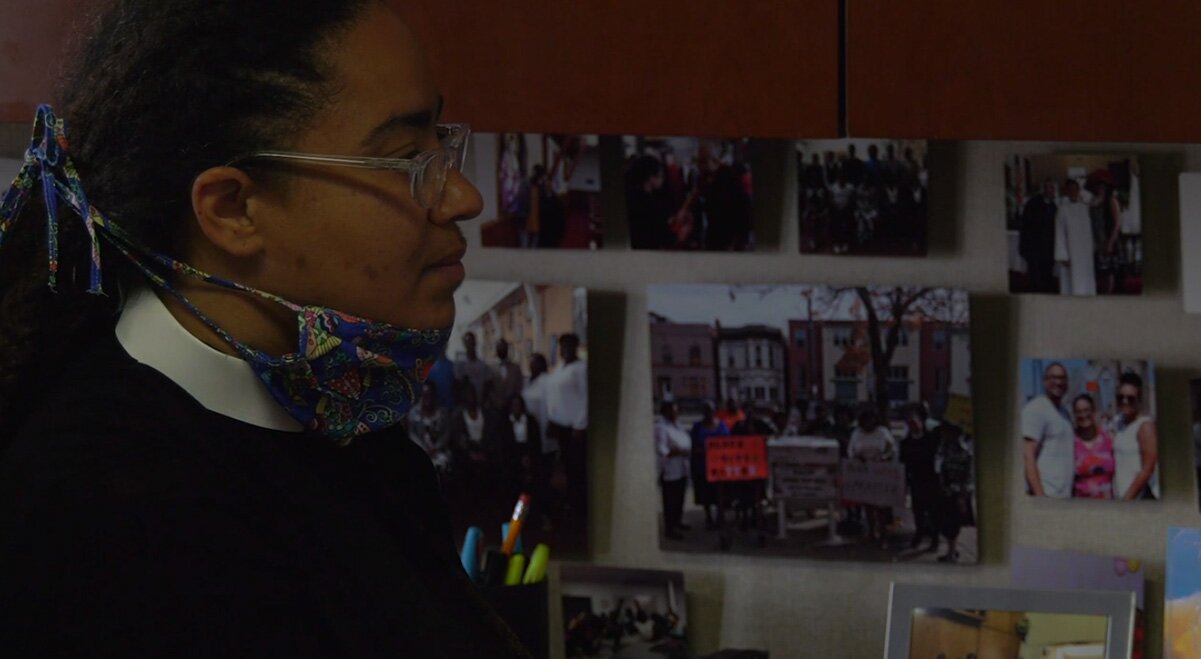
The pastor of Campbell Chapel African Methodist Episcopal Church has not been able to make communion visits since the first Sunday in March. On that day, Pastor Jennifer Leath visited parishioners in their homes and in nursing homes.
“Within a few days, I was sick,” Leath said.
She suffered for weeks with symptoms consistent with COVID-19, although she was unable to get tested to confirm the diagnosis.
“I knew that I could not in good faith go back to visit my parishioners and I knew that I would put them at risk,” Leath said. “So I’ve found myself since that point in a very difficult position to discern how to act with faith and not with fear, but at the same time to be concerned about the bodily well-being of my community.”
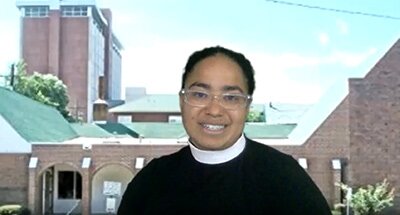
“Two of the people who were in one of the nursing homes I visited on that day from my congregation of about 137 have since passed within that time frame,” she said. “I am grateful to God for having had the opportunity to FaceTime with one of those women who was in the nursing home before she passed and to pray with her … But it’s not the same, to be limited in this way. And certainly there’s a deep moral burden when it feels like the very thing that we are called to do in visiting the sick, is the thing that puts the sick in danger.”
Leath is holding virtual services for her church during this time of social distance. She said at least two members of her congregation have recovered from likely cases of COVID-19. Data from Colorado and many other areas of the country have shown the African-American community has been disproportionately affected by the virus, and Leath said the calls keep coming from members of her congregation who are directly or indirectly impacted by COVID-19.
“It has been an opportunity for us to convey to one another that spiritual solidarity is important in this time of social distance, and to dig deep into the well of spiritual strength that we have.. knowing that God is with us always even unto the ends of the Earth, and that no matter where we go, we are never alone,” she said.
Father Giovanni Capucci
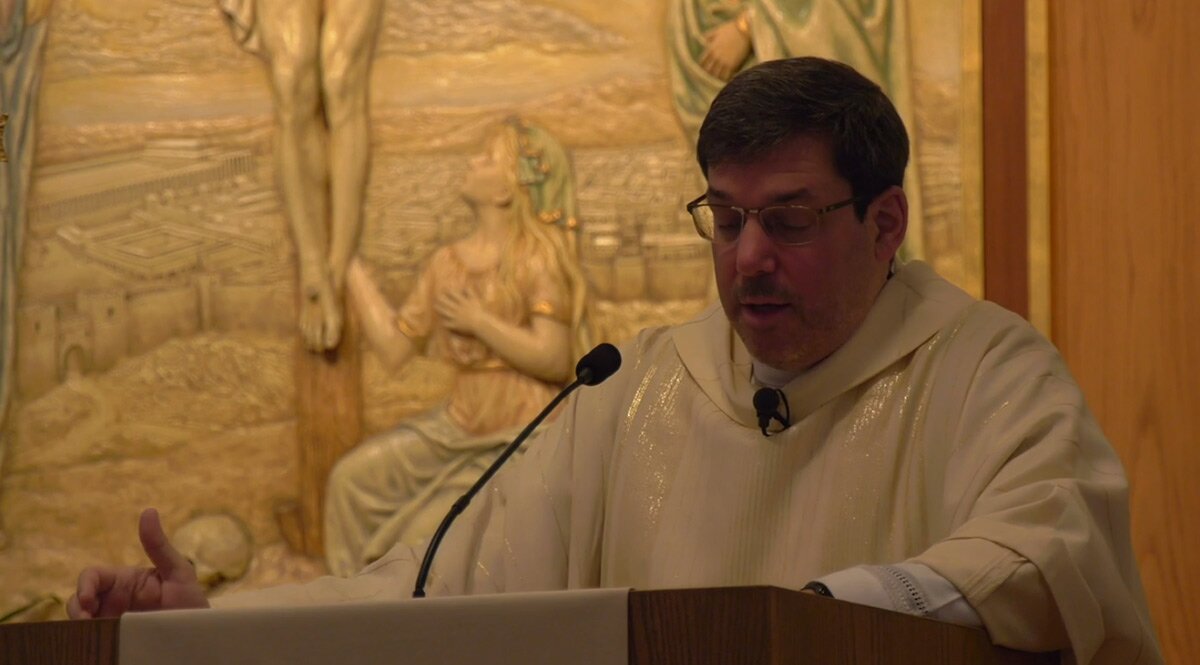
Father Giovanni Capucci has visited the bedsides of dying patients at Swedish Medical Center.
“In my personal experience, I have visited people that are really at the last phase or stage, so [they are] unconscious most of the time,” Capucci said. “Even if maybe they’re not conscious in that moment, I think it is fundamental. It is a work of mercy, an act of mercy, that needs to be done to anyone who is dying.”
Capucci recounted a recent profound moment at the bedside of a woman as she was dying.
“I began to pray with her, I anointed her, and she woke up ... and she began with me the Our Father. And then she began to be unconscious again, but for me it was a really profound moment of hope for this person because somehow she understood that I was praying with her,” he said.
Capucci said he is often the voice of family members who cannot visit people as they are dying.
“Every time that I go, personally, I go with trepidation. We need to gear up, we have all of the protection that is given to us. But I always come out of that room or that hospital with joy in my heart,” he said.
Chaplain Gina Graves
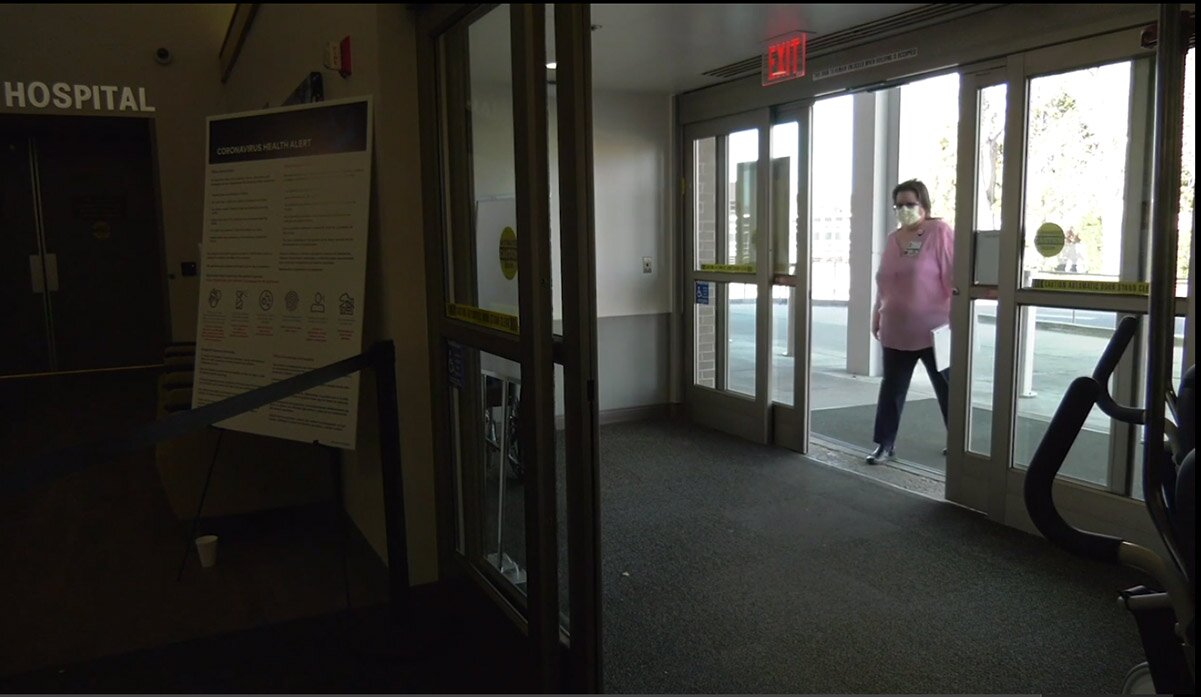
Chaplain Gina Graves runs a team of chaplains at Swedish Medical Center and she remembers when the reality of COVID-19 first hit inside the hospital.
“Our very first COVID patient that passed away, I got called down to the ICU. Another colleague handed me her phone that had all of the family members conferenced into her personal iPhone, and she said ‘The family needs some encouragement and they want you to say a prayer,’” Graves said. “[I] didn’t have that time to get to know them. That presented a barrier that I wasn’t really expecting, and that made it a little uncomfortable at first. But fortunately I’m getting better at that.”
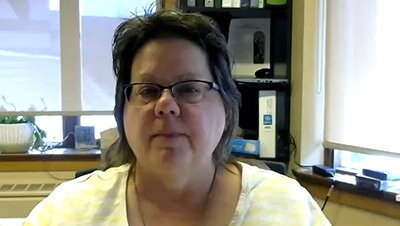
“When we have spouses that are losing their partner, and they’ve been married 50, 60 years. And they’ve had a lifetime of faith, they know where their loved one is going. And that produces a calmness. They’re still mourning and there’s still grief because that person is not going to sit across from you at the breakfast table anymore. But there’s still a level of contentment that you know where they’re going and you know that you’ll see them again,” she said.
Graves said she recognizes the need to take care of herself after witnessing so much loss.
“I pray a lot. I do my best to, when I get in my car, I take my badge off and throw it in the little cubby there, and that’s a semblance of, that stays at work and I don’t take a lot of it home. There are some evenings that you can’t help but to take it home with you,” Graves said.
“For me, my self-care ritual is music. So I may go home and put on my favorite playlist, put headphones in my ears and just kinda zone out for half an hour to an hour, and let that refill and recharge my soul, so to speak.”
Rabbi Jeffrey Kaye
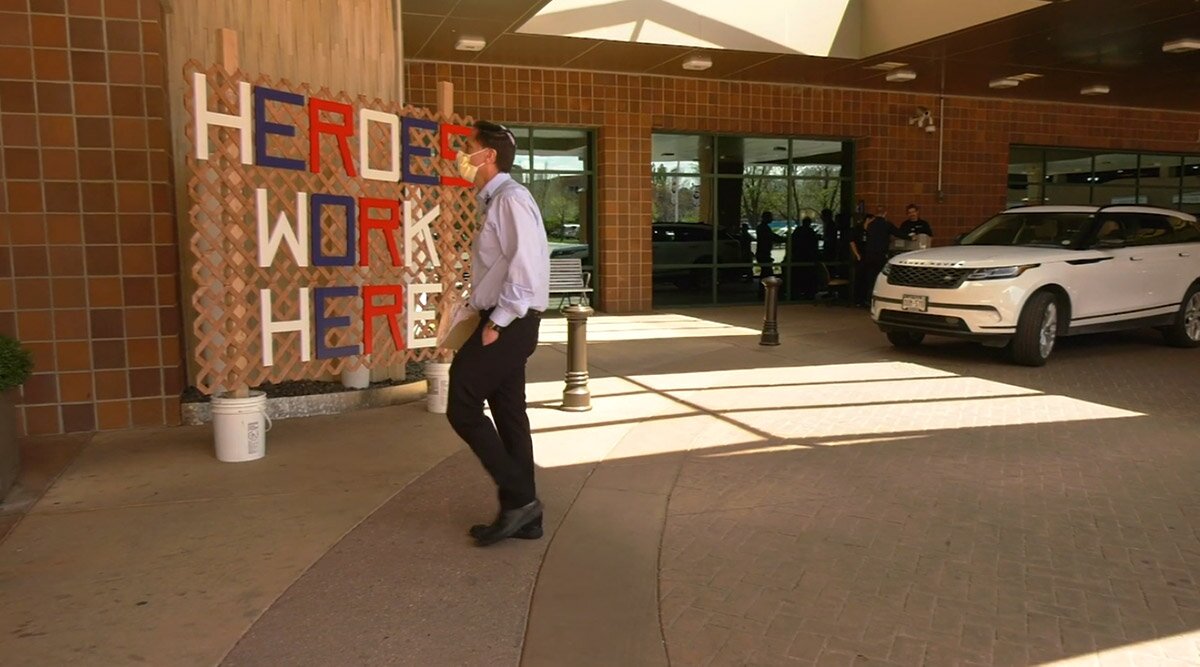
As the head chaplain at Rose Medical Center, Rabbi Jeffrey Kaye has also become accustomed to watching family members give their final goodbyes through modern technology.
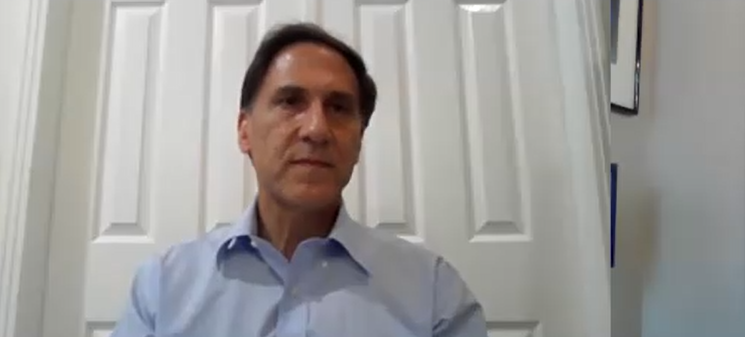
“Even when their loved one might have been intubated or ventilated, to have the phone brought up to their ear so they can hear that voice to be comforted, to hear loving words of tenderness and uplift be shared … It is truly heartbreaking and yet at the same time there is such incredible uplift,” Kaye said.
The rabbi said while he is ministering to patients and family members, it’s also important in this time to support the hospital’s staff.
“These front line health care workers who are going beyond and above every day, sharing their excellence and their professionalism, as well as their humanity and their compassion. Things that are physically, emotionally, spiritually draining. To touch base with them, to see how we can be of support, to share moments of gratitude and appreciation, both within the hospital community but also gratitude on behalf of the greater community,” he said.